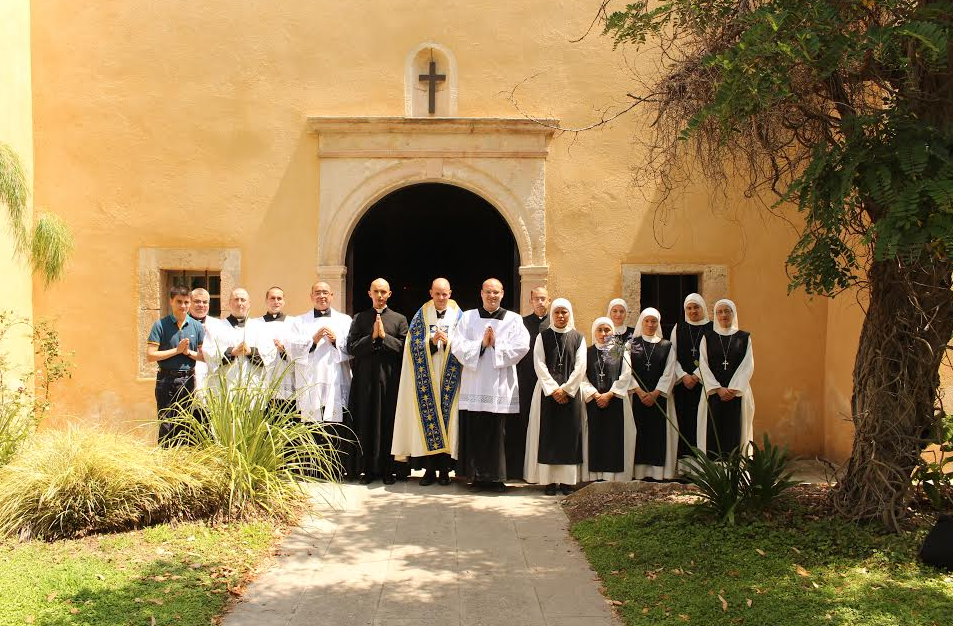We shall go on to the end. We shall fight in France, we shall fight on the seas and oceans, we shall fight with growing confidence and growing strength in the air, we shall defend our island, whatever the cost may be. We shall fight on the beaches, we shall fight on the landing grounds, we shall fight in the fields and in the streets, we shall fight in the hills; we shall never surrender, and if, which I do not for a moment believe, this island or a large part of it were subjugated and starving, then our Empire beyond the seas, armed and guarded by the British Fleet, would carry on the struggle, until, in God's good time, the New World, with all its power and might, steps forth to the rescue and the liberation of the old.
These, of course, were Churchill's famous words in his speech to Parliament of June 4, 1940, during the most dramatic month of the Second World War. We read it today, and we are stunned by what was apparently an insane level of uncalled-for hope in a desperate situation.
Two numbers released in the past couple of days exemplify the desperate vocational situation of the Church in most of Europe today: in the whole of Belgium, with a population of over 10 million people and a glorious Catholic past just until the 1960s, only 14 priests will be ordained in 2014, half of them foreign nationals (source); in the island of Corsica, France, there is at this moment just one young man, a Lebanese citizen, preparing for ordination (source).
In fact, one of the most surprising elements of the current Islamization of a vast proportion of the European population is precisely that it is a phenomenon of the past few decades -- that is, the religious decline in Europe is not a given for its environment. This is important as a sign (worrisome and at times terrifying as it may be). Many European-born descendants of immigrants from Muslim nations are more religious than their parents, and mosques and minarets spring up everywhere. Why has the movement among the native population, in particular Catholic families, been the opposite after the events of the 1960s, including the Catholic events of that decade?
___________________________________
While Church committees discuss without end without acknowledging the source of the problem, some are doing much more than this. This great new seminary, a specific initiative of the New World coming in rescue of the Old World that gave it so much, was announced elsewhere, but they were kind enough to send us more details:
We thought readers of Rorate Cæli might be interested in learning about the new seminary that will be established presently in the diocese of Fréjus-Toulon by Bishop Dominique Rey, entrusted to the Fraternity of St Joseph the Guardian (FSJC). The goal of the seminary is to form priests from North and South America in order to serve as missionaries in Europe. The seminarians will be taught both forms of the Roman Rite, with a special focus on the traditional liturgy; their formation will also emphasize the defence of human life in all its stages and the promotion of the natural family. The seminary will be located in Bormes-les-Mimosas with a future branch in La Londe-les-Maures. There is more information at the its website, http://www.missionariesforeurope.org/.
The seminary will be run by the Fraternity of St Joseph the Guardian (Fraternitas Sancti Joseph Custodis, FSJC), established by Bishop Rey in Fréjus-Toulon on 19 March 2010 as a public association of the faithful aiming to become an institute of consecrated life. divided into male and female branches, strive for the perfection of charity through the ties of community life, the profession of vows of chastity, poverty, and obedience, and by following certain spiritual and apostolic ends.
The Fraternity seeks to take part in the divine mission vouchsafed to St Joseph, viz. to keep and serve Our Lord Jesus Christ, fostering an ordered insertion of the Son of God into the world and reëstablishing the primacy of God in the hearts and minds of men.
Contemplation of divine matters and union with God through diligent prayer are the first and foremost duties of the members of the Fraternity. The central aspects of daily life are therefore participation in Holy Mass (in both forms) and the chanting of the Divine Office, Adoration of the Blessed Sacrament, meditation, praying the Holy Rosary, study, and lectio divina.
It wishes, moreover, to proclaim and expand the Kingdom of Christ through a fervent missionary life, focusing especially on the establishment of houses in remote rural areas without regular access to priests. The preaching of the Spiritual Exercises of St Ignatius are an integral part of its missionary activity (e.g., in Allentown, N.J.)
The Fraternity began in Chile as a result of the efforts of Father Federico Alcamán Riffo, then-pastor of the town of Puchuncaví in the diocese of Valparaíso, which bore fruit in young laymen with an apostolic spirit and a solid formation. The preaching of popular missions in Fr Alcamán’s parish and in the south of Chile soon became a characteristic aspect of the group’s apostolate.
Our sources in Chile all acknowledge the great quality of the founder and of the project. While it is not an exclusively traditional institute, it is oriented towards the Extraordinary Form of the Roman Rite (the Traditional Latin Mass).
(In the image, Seminarians and Priests at a recent ceremony. Also present are six of the nuns in the female branch of the community. Their convent is in Toulon, near the seminary of La Castille.)
